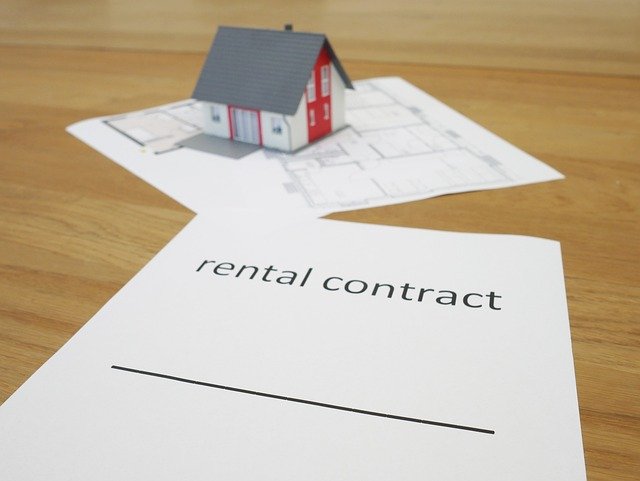How to Apply for Senior Housing Vouchers and What They Provide
Senior housing vouchers offer a vital lifeline for older adults struggling with housing costs. These federally funded programs help eligible seniors secure affordable housing by subsidizing rent payments, making it possible to live independently while managing fixed incomes. Understanding the application process, eligibility requirements, and available benefits can help seniors access safe, affordable housing options in their communities.

Who Can Apply for Senior Housing Vouchers
Senior housing vouchers are primarily available to individuals aged 62 and older who meet specific income requirements. The Housing Choice Voucher Program, administered by local Public Housing Authorities (PHAs), serves as the main source of rental assistance for seniors. Eligibility is typically based on household income falling below 50% of the area median income, with priority often given to those earning less than 30% of the median.
Additional qualifying factors include U.S. citizenship or eligible immigration status, and passing background checks. Some programs also consider disability status, with seniors having disabilities potentially qualifying for specialized voucher types. Veterans may have access to HUD-Veterans Affairs Supportive Housing (HUD-VASH) vouchers, which combine rental assistance with supportive services.
Types of Senior Housing Vouchers
Several voucher programs cater specifically to senior housing needs. The standard Housing Choice Voucher allows seniors to rent privately-owned housing where landlords accept vouchers. Project-Based Vouchers attach assistance to specific housing developments, often senior-designated properties with age-restricted communities.
Enhanced vouchers protect seniors from rent increases when their housing converts from subsidized to market-rate. Family Unification Program vouchers assist seniors aging out of foster care or those at risk of family separation. Mainstream vouchers specifically serve non-elderly disabled individuals, including seniors with disabilities under 62. Each program type offers different benefits and application processes through local housing authorities.
Where to Apply for Senior Housing Vouchers
Applications for senior housing vouchers must be submitted through local Public Housing Authorities in your area. Each PHA maintains its own waiting list and application procedures, making it essential to contact housing authorities in your preferred location. Many PHAs offer online applications, while others require in-person or mail submissions.
HUD’s website provides a PHA directory allowing seniors to locate housing authorities by state and city. Some regions coordinate applications through centralized systems, while others require separate applications to multiple PHAs. Given lengthy waiting lists, seniors should apply to multiple housing authorities to increase their chances of receiving assistance. Local Area Agencies on Aging can also provide guidance on housing programs and application assistance.
How to Apply for Senior Housing Voucher
The application process begins with completing PHA-specific forms that collect information about household composition, income, assets, and housing preferences. Required documentation typically includes proof of age, Social Security cards, income statements, bank records, and identification documents. Medical documentation may be needed for disability-related preferences or accommodations.
After submitting applications, PHAs conduct eligibility interviews to verify information and explain program requirements. This process includes criminal background checks and landlord references. Once approved, applicants join waiting lists that can extend several years in high-demand areas. PHAs use preference systems that may prioritize seniors based on factors like local residence, veteran status, or displacement from federally-assisted housing.
Senior Housing Voucher Program Costs and Benefits
Senior housing vouchers significantly reduce housing costs by covering the difference between 30% of adjusted household income and approved rent amounts. For example, a senior with $1,200 monthly income would pay approximately $360 toward rent, with the voucher covering additional costs up to payment standards set by local housing authorities.
| Housing Authority | Average Payment Standard | Senior-Specific Programs | Estimated Wait Time |
|---|---|---|---|
| New York City Housing Authority | $1,800-$2,400 | Senior Citizen Rent Increase Exemption | 8-12 years |
| Los Angeles Housing Authority | $1,400-$1,900 | Project-Based Senior Housing | 5-7 years |
| Chicago Housing Authority | $1,200-$1,600 | Senior Accessibility Programs | 3-5 years |
| Miami-Dade Public Housing | $1,100-$1,500 | Hurricane Recovery Senior Priority | 2-4 years |
Prices, rates, or cost estimates mentioned in this article are based on the latest available information but may change over time. Independent research is advised before making financial decisions.
Beyond rent assistance, senior housing vouchers often provide access to age-restricted communities offering services like transportation, meal programs, and health support. Many voucher-accepting properties feature accessibility modifications, emergency response systems, and social activities designed for older residents.
Senior housing vouchers represent crucial support for older adults facing housing affordability challenges. While waiting periods can be extensive and eligibility requirements strict, these programs provide substantial financial relief and access to appropriate housing options. Seniors should begin the application process early, apply to multiple housing authorities, and seek assistance from local aging services organizations to navigate the system effectively. Understanding available options and maintaining accurate documentation helps ensure successful participation in these vital housing assistance programs.




